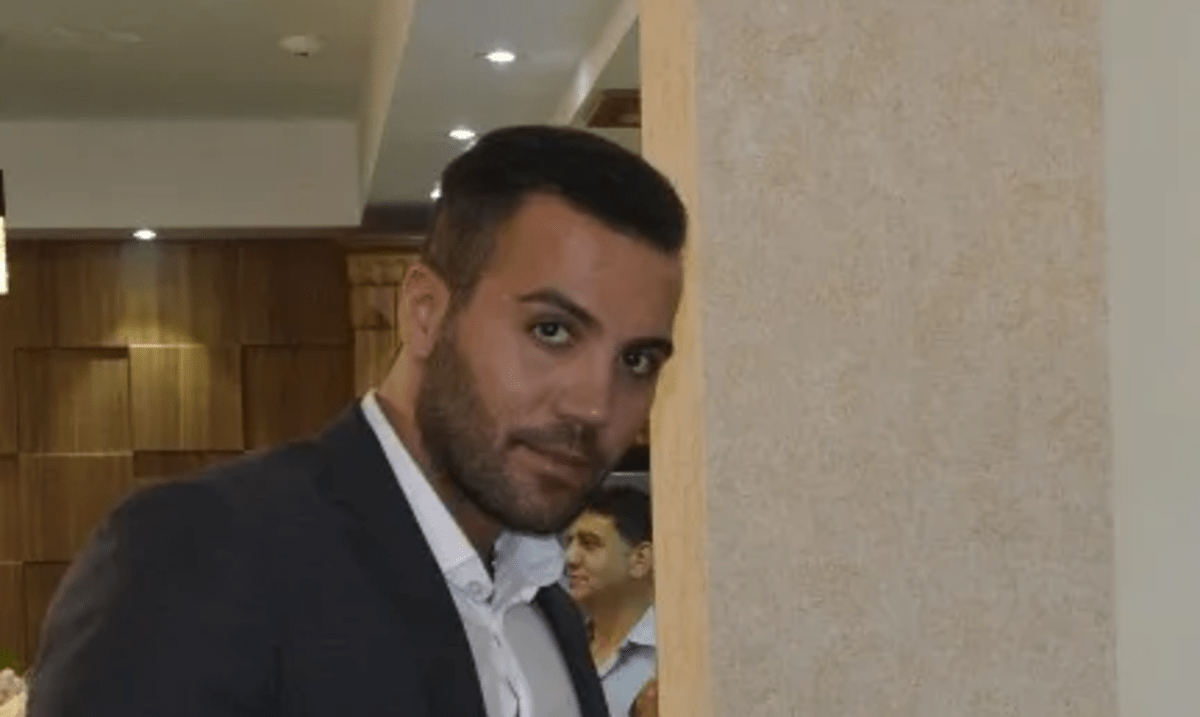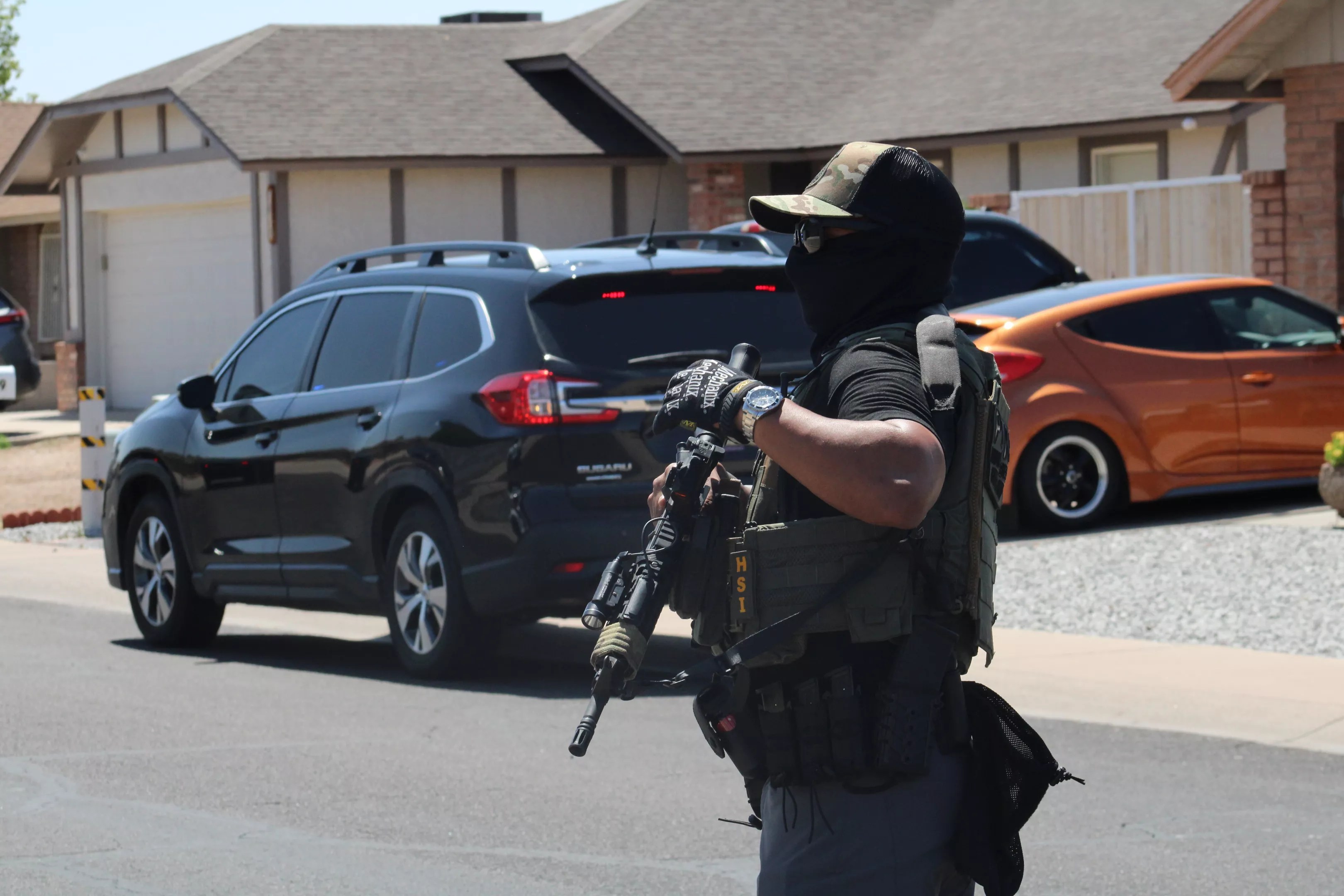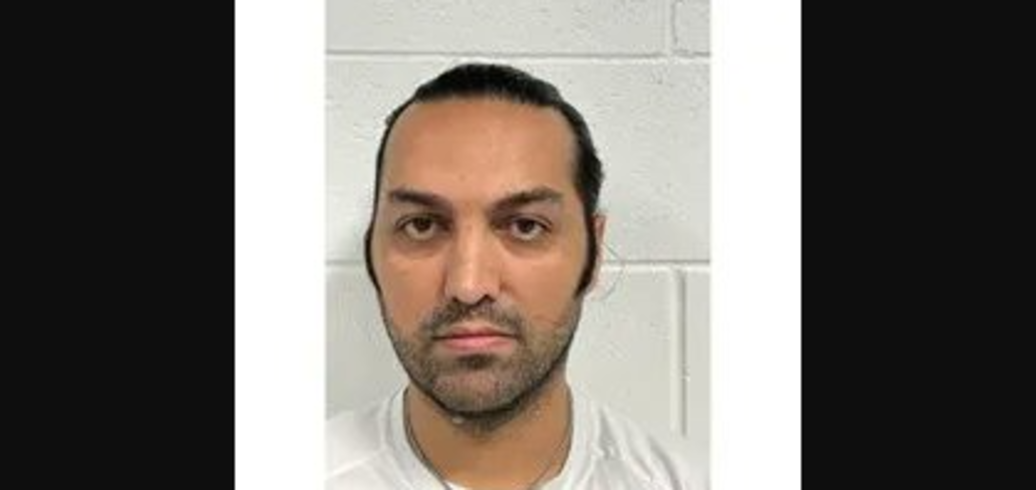
Courtesy of Rebecca Cheaves

Audio By Carbonatix
For the past month, Iranian asylum seeker Mehrad Asadi Eidivand has been held in detention at a U.S. Immigration and Customs Enforcement facility in Florence. Twice in that time, he has engaged in a hunger strike over his inability to get a prompt court date. This week, a judge ruled that the Department of Homeland Security, which oversees ICE, could force-feed Eidivand while in detention.
Eidivand’s ordeal generated headlines locally and nationally. His attorney and his sister-in-law spoke out against his detention. Then over the weekend – in a move that Eidivand’s attorney believes was retaliation by ICE – immigration agents arrested his brother and sister-in-law at their Tempe home.
The brother – a similarly named undocumented Iranian man, Mehrzad Asadi Eidivand – was charged with being an alien in possession of a firearm, according to court documents. The sister-in-law, a U.S. citizen named Linet Vartanniavartanians, was indicted on a charge of making threats against a law enforcement officer.
The pair was arrested Sunday by agents from Homeland Security Investigations. It’s not clear where they’re being held. A search of Mehrzad Eidivand’s name does not return any results on ICE’s detainee lookup tool, and a lawyer listed in court documents as representing Vartanniavartanians declined to comment when reached by Phoenix New Times.
Immigration attorney Rebecca Cheaves, who is representing the hunger-striking Mehrad Eidivand, told New Times she is trying to locate his detained family members. She said that when Mehrad Eidivand learned of his brother and sister-in-law’s arrest, he said, “It doesn’t surprise me.”
“Mehrad’s brother, prior to this arrest, was helping me gather all this evidence for Mehrad,” Cheaves said. “I just feel like it was targeted toward the brother and wife. What a coincidence that I’m over here struggling with Mehrad getting him released and the brother is my point of contact, providing all the information for me on his asylum claim.”
A spokesperson for ICE acknowledged a request for comment but has not answered questions from New Times.
The timing of the arrests raises eyebrows about ICE’s decision to target Mehrzad Eidivand for removal. According to an affidavit signed by HSI agent Anthony Sinatra, Mehrzad Eidivand entered the United States in 2012 through a port of entry, claiming “a fear of return to his home country.” Iran is governed by a militant Islamic government; the Eidivand brothers are Christians, Cheaves said. In 2013, an immigration judge ordered Mehrzad Eidivand to voluntarily depart the country.
Mehrzad Eidivand has appealed that ruling several times in the years since, so far unsuccessfully. On May 2, he motioned to adjust his immigration status to account for his marriage to Vartanniavartanians, a request the affidavit said is pending. However, the indictment against him does not suggest he has any criminal record, though he has been eligible for arrest and removal since receiving the 2013 order to depart the country.
That’s why Cheaves finds it curious that the Department of Homeland Security didn’t target him until his brother’s hunger strike subjected the department to negative news coverage.
“I believe that they targeted Mehrad’s brother and his wife because of Mehrad’s situation,” Cheaves said. “They don’t want him to get any help from the outside, so the best way to do that is to detain them as well.”

A Homeland Security Investigations agent stands in a Peoria neighborhood on June 10.
Morgan Fischer
The arrests
ICE first attempted to detain Mehrzad Eidivand at his home on June 21, without success. And it appears the way he and Vartanniavartanian reacted to that attempt may have given HSI agents an opening to arrest them a day later.
According to court documents and a press release from the U.S. Attorney for the District of Arizona, ICE showed up at the couple’s home and were denied entry by Vartanniavartanians, who refused to talk to them and told them to return with a warrant. The indictment says Vartanniavartanians then called Tempe police and also includes quotes from the 911 call she made.
New Times has requested the 911 audio, body-worn camera footage and incident reports from Tempe police related to the incident but has yet to receive them.
The indictment says Vartanniavartanians informed the police dispatcher that she was armed and that “anybody trying to enter my house is going to be shooted (sic). I don’t allow anyone in my house, including ICE.” She also allegedly threatened to “go outside the backyard” and “just shoot them in the head,” actions she noted would land her “in the prison.”
According to the indictment, Mehrzad Eidivand came to the phone at one point and told the Tempe police dispatcher that “he is a patriot and does not agree with what’s going on.” When asked if there were guns in the house, he allegedly acknowledged there were “plenty of guns.”
That admission, and his wife’s threat to shoot any ICE agents who entered her home without a warrant, may have given immigration agents the justification for arresting them on their respective criminal charges. When HSI agents executed a search warrant at the home a day later, they said they found two loaded handguns, one on the kitchen counter and the other on a nightstand. Vartanniavartanians also allegedly told agents that she had guns.
As a U.S. citizen, she enjoys the right to bear arms, and Cheaves said she believes both guns are registered to Vartanniavartanian. But even if she legally owned the weapons, their presence in the home – and Mehrzad Eidivand’s knowledge of and potential access to them – may have put him in legal jeopardy.
According to Phoenix criminal defense attorney Bret Royle, the fact that Mehrzad Eidivand might not have owned the firearms is largely irrelevant to whether he “possessed” them as criminal law defines the term. Such cases often rely on what’s called constructive possession. “It’s do I have knowledge that the item is there and do I have the ability to have dominion and control over it,” Royle said.
Joshua Davidson, another criminal defense attorney in Phoenix, offered an example to illustrate the concept.
“I’m currently in actual possession of the pocket change in my pants as I’m talking to you right now, and the pen that I’m holding in my hand because I’m manipulating it,” Davidson said. “I’m also in constructive possession of the unfolded laundry on my washing machine in my house 10 miles away from here. Even though I’m not there, it’s my house. I have a key to it, I have control over what comes in and out, and the ability and intent to move things around in there.”
That Mehrzad Eidivand allegedly admitted to knowledge of the guns, and that they were found in accessible places, “is probably not going to cut in his favor,” Davidson said. Still, the concept of possession often can be finely parsed in court. For instance, whose nightstand one of the weapons was found on could come into play.
Cheaves and other immigration attorneys interviewed for this story felt the gun charge may be overblown and also said there was a chance Vartanniavartanians might successfully fend off her charge of threatening an officer. The indictment does not say she pointed a gun at federal agents or did anything beyond tell a police dispatcher she would shoot if they didn’t leave.
Immigration lawyer Salvador Macias noted the new practice of immigration agents covering their faces and badges to avoid identification, though the indictment said the agents who initially attempted to enter the house identified themselves as law enforcement and wore vests that said “POLICE” and “ICE.” Cheaves noted the lack of a warrant. “Somebody’s pounding on my door without a warrant – I don’t know what she said to them – but you have a right to defend your property,” Cheaves said.

The booking photo of Mehrzad Eidivand.
Immigration and Customs Enforcement
What comes next
Though it’s unclear where the pair is being held, each has a court date scheduled. Mehrzad Eidivand is set for a detention hearing on July 1. Vartanniavartanians has a hearing for the same purpose on July 9. Cheaves said she is unsure yet whether she will represent Mehrzad Eidivand in any removal proceedings.
“My plan is to visit them,” she said. “I don’t know what I’m going to do after I visit them because I need to get the facts from them.”
Meanwhile, Cheaves said, Mehrad Eidivand stopped his second hunger strike on June 25. “I said, ‘I can’t advise you not to eat. I will not advise you not to eat,'” she said. “‘But I will tell you that I understand what you’re doing. You need to take care of yourself and I don’t want you to die in here. You need to take care of your health.'”
Cheaves said Homeland Security is still seeking a court’s go-ahead to force-feed him.
Along with the federal public defender’s office, Cheaves is preparing a habeas corpus motion she hopes will result in her client’s release. Mehrad Eidivand has been locked up since May 31. That two of his family members have since been arrested – despite one being eligible to be arrested by ICE for more than a decade – doesn’t strike Cheaves as a coincidence.
“ICE has all this authority and discretion,” she said, “and they’re just abusing it.”